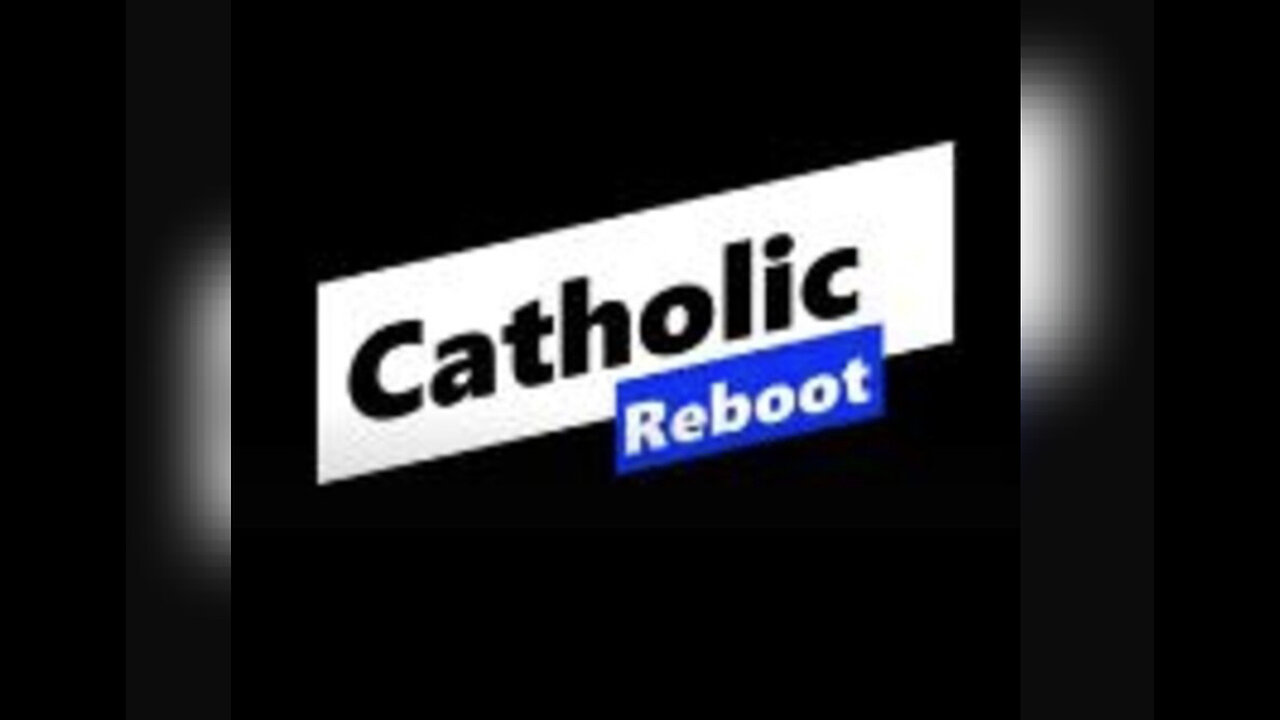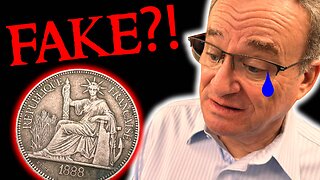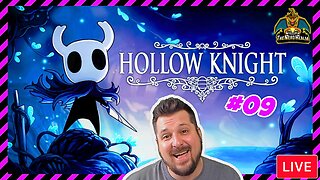Premium Only Content

Episode 2250: The Flight into Egypt: God's Providence and Protection by Sharon
Today we will explore the richness of our Catholic faith through the lens of Scripture and the wisdom of the saints.
We will delve into the passage from the Gospel of Matthew, chapter 2, verses 13-15. This section of Scripture recounts the Holy Family's flight into Egypt, a profound event filled with lessons on divine providence, obedience, and protection. We will break down these verses from a traditional Catholic perspective, uncovering their deep spiritual significance. Let's embark on this journey together.
Before we start Walt, can I share something from The Glories of Mary by St Alphonus De Liguori?
As a stag, wounded by an arrow, carries the pain with him wherever he goes, because he carries with him the arrow that has wounded him; thus the divine mother after the prophecy of Simeon, as we saw in our consideration of the first grief, always carried her sorrow with her by the continual remembrance of the passion of her Son. Thus her Son himself was that arrow in the heart of Mary who the more worthy of love he showed himself to her, always wounded her the more with the sorrowful thought that she should lose him by so cruel a death. I think that can help us more consider the second sword of sorrow which wounded her on the flight into Egypt from the persecution of Herod.
Let me start by reading the Scripture Reading: Matthew 2:13-15
"Now when they had departed, behold, an angel of the Lord appeared to Joseph in a dream and said, 'Rise, take the child and his mother, and flee to Egypt, and remain there till I tell you; for Herod is about to search for the child, to destroy him.' And he rose and took the child and his mother by night, and departed to Egypt, and remained there until the death of Herod. This was to fulfill what the Lord had spoken by the prophet, 'Out of Egypt have I called my son.'
Let me break this down:
1. Divine Guidance and Obedience:
"An angel of the Lord appeared to Joseph in a dream and said, 'Rise, take the child and his mother, and flee to Egypt, and remain there till I tell you; for Herod is about to search for the child, to destroy him.'"
This moment emphasizes the importance of divine guidance and prompt obedience to God's will. St. Joseph's immediate response to the angel's message is a model of faith and trust in God's plan. His readiness to protect the Holy Family at God's command reflects his role as the guardian of the Redeemer and the Virgin Mary.
This passage should encourage us to remain attentive to God's voice, often communicated through prayer, Scripture, and the teachings of the Church. It underscores the necessity of trusting in God's providence, especially when faced with danger or uncertainty.
2. The Flight into Egypt:
"And he rose and took the child and his mother by night, and departed to Egypt, and remained there until the death of Herod."
The journey to Egypt signifies a time of trial and exile for the Holy Family. In traditional Catholic teaching, Egypt represents a place of refuge but also a land of historical bondage. The Holy Family's flight into Egypt echoes the experiences of the Israelites, drawing a parallel between Jesus as the New Moses and the deliverance He brings.
This part of the narrative teaches us about the sacrifices involved in following God's will. It also reassures us that God provides protection and guidance even in the most challenging circumstances. The Holy Family's trust in God's plan, despite the difficulties, is a powerful example for us to follow.
According to the Blessed Albertus Magnus says in the name of Mary, must he, then, who came to save men flee from men? The afflicted Mary knew the that already the prophecy of Simeon regarding her Son was beginning to be verified. “He is set for a sign which will be contradicted” He was scarcely born when he is persecuted to death. What suffering must be in the heart of Mary? St John Chrysostom concerning the the fleeing what a cruel exile of herself with her Son! Flee from the thy friends to straingers, from the holy temple of the only true God, to the temple of Demons. What greater tribulation than that of a newborn child clinging to its mother’s bosom should be forced to fly with the mother herself?
Authors generally agree that this was a 400 mile journey. Which would take at least 30 days to complete. The way St. Bonaventure describes it was it was rough, unknown, through woods, and little frequented. The season was winter and therefore they had to travel in snow, rain, wind and storms through bad and difficult roads. Mary was then fifteen, a delicate virgin, unaccustomed to such journeys. They had no servant to attend them Joseph and Mary said St Peter Chrysotogus, had no man servant. Where did they get food? Where did they rest at night? How were they lodged? What food could they have than a piece of hard bread which Joseph brought with him or begged in charity? Where could they have slept particularly in the two hundred miles of desert? As authors relate, there were neither houses nor inns, except on the sand or under some tree in the wood, in the open air exposed to robbers or those wild beasts with which Egypt abounded. Ah, if any one met these three greated personages of the world, who would they have believed them to be but three poor roving beggars?
3. Fulfillment of Prophecy:
"This was to fulfill what the Lord had spoken by the prophet, 'Out of Egypt have I called my son.”
Matthew highlights the fulfillment of Hosea's prophecy (Hosea 11:1)
"When Israel was a child, I loved him: and I called my son out of Egypt."
This shows that Jesus' life is a continuation and fulfillment of the Old Testament. This connection between the Old and New Testaments reinforces the unity and continuity of God's salvific plan.
The citation of prophecy also shows that God’s plans are meticulous and purposeful. The fulfillment of this prophecy serves as a reminder of God's sovereignty and faithfulness to His promises. It calls us to deepen our understanding of Scripture, recognizing the profound ways in which the Old Testament foreshadows the New.
Let’s consider the time they lived in Egypt. According to Brocard and Jansenius, in a district called Matures, though according to St Amselm, they dwelt in Heliopolis, first called Memphis and now Cairo. Lets consider the great poverty they must have suffered for the seven year they were there as St Antoninus, St Thomas and others assert. They were foreigners, unknown, without revenues, without money, without kindred; hardly were they able to support themselves by humble labors. As they were destitute says St Basil, it is manifest what effort they must have made to obtain there the necessaries of life. Moreover, Landolph pf Saxony has written, and let it be repeated for the consolation of the poor that so great was the poverty of Mary there, that sometimes she had not so much as a morsel of bread, when her Son, forced by hunger, asked it of her.
St Matthew also relates that when Herod was dead, the angel again appeared to Joseph in a dream and directed him to return to Judea. Concerning the return, St Bonaventure considers the greater pain of the blessed Virgin, on account of the suffering which Jesus must have endured in the journey, having arrived at about the age of 7 when he was too large to carry and yet small that he needed assistance.
The sight of Jesus and Mary, wandering like fugitives through this world, teaches us that we should also live as pilgrims on this earth, detached from the goods which the world offers us as having soon to leave them and go to eternity. We have not here a lasting city, but seek one that is to come. To which St Augustine adds: Thou art a stranger thou givest a look and then passest on.
One last comment, the Blessed Veronica da Binasco, an Augustinian nun, was carried in spirit to accompany Mary and the infant Jesus to Egypt and at the end the of it the divine mother said to her, “Child thou hast seen through the difficulties we have reached this place? Now learn that no one receives graces without suffering” He who wished to feel least the sufferings of this life, must take Jesus and Mary with him. For him who lovingly bears in his heart this Son and his mother, all sufferings become light and even sweet and dear. Let us then love them, let us console Mary by receiving her Son within out hearts, whom, even now, men continue to persecute.
And, the blessed Colletta, a Franciscan nun, was visited by the most holy Mary and showed her the infant Jesus in a basin torn to pieces and then said to her,” Thus sinners continually treat my Son, renewing his death and my sorrows. Oh my daughter, pray for them that they may be converted.
Conclusion:
Reflecting on Matthew 2:13-15, we uncover profound lessons about divine providence, obedience, and the fulfillment of God's promises. The Holy Family's flight into Egypt is a testament to the protective care of God and the importance of trusting in His plan, even amidst trials and uncertainties.
As we meditate on this passage, let us strive to emulate St. Joseph’s obedience and trust, seeking God's guidance in our lives. Let us also appreciate the fulfillment of prophecy, which assures us of the continuity and reliability of God’s salvific plan.
Thank you for joining us. May these reflections inspire you to deepen your faith and trust in God's providence. Until next time, may God bless you and keep you in His loving care.
-
 1:31:18
1:31:18
Redacted News
8 hours agoEMERGENCY! NATO AND CIA ASSASSINATE TOP RUSSIAN GENERAL, PUTIN VOWS IMMEDIATE RETALIATION | Redacted
221K420 -
 56:45
56:45
VSiNLive
7 hours ago $5.73 earnedFollow the Money with Mitch Moss & Pauly Howard | Hour 1
73.6K2 -
 52:44
52:44
Candace Show Podcast
8 hours agoMy Conversation with Only Fans Model Lilly Phillips | Candace Ep 122
93.5K329 -
 LIVE
LIVE
tacetmort3m
8 hours ago🔴 LIVE - RELIC HUNTING CONTINUES - INDIANA JONES AND THE GREAT CIRCLE - PART 5
290 watching -
 26:52
26:52
Silver Dragons
6 hours agoCoin Appraisal GONE WRONG - Can I Finally Fool the Coin Experts?
35.6K2 -
 6:49:16
6:49:16
StoneMountain64
11 hours agoNew PISTOL meta is here?
37K1 -
 20:58
20:58
Goose Pimples
12 hours ago7 Ghost Videos SO SCARY You’ll Want a Priest on Speed Dial
21K3 -
 2:24:59
2:24:59
The Nerd Realm
10 hours ago $2.92 earnedHollow Knight Voidheart Edition #09 | Nerd Realm Playthrough
36.9K2 -
 1:21:14
1:21:14
Awaken With JP
12 hours agoDrones are for Dummies - LIES Ep 70
120K60 -
 1:47:29
1:47:29
vivafrei
10 hours agoJustin Trudeau Regime ON THE VERGE OF COLLAPSE! And Some More Fun Law Stuffs! Viva Frei
93.1K82